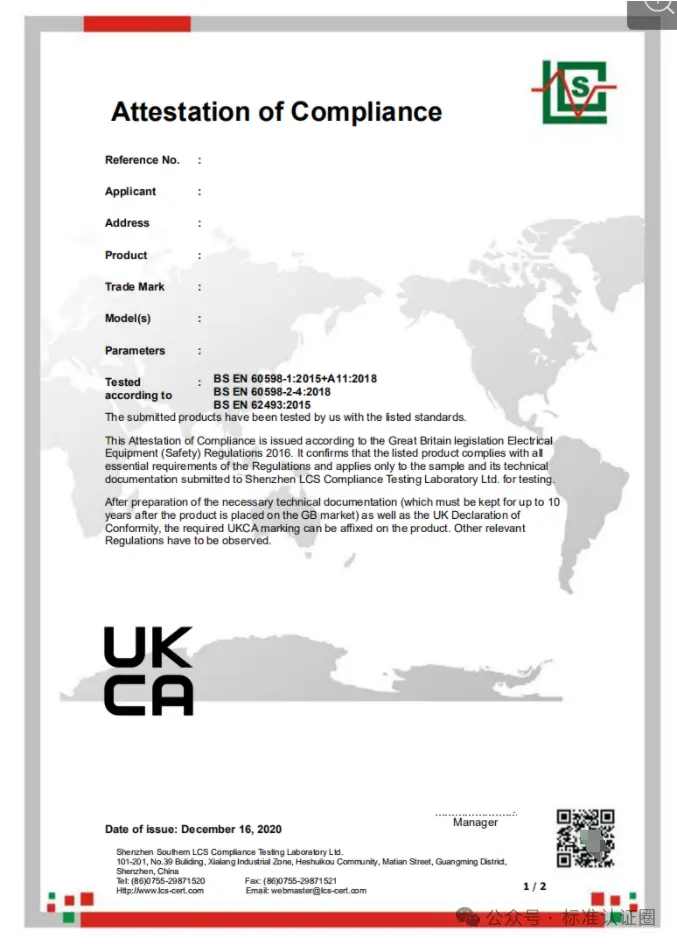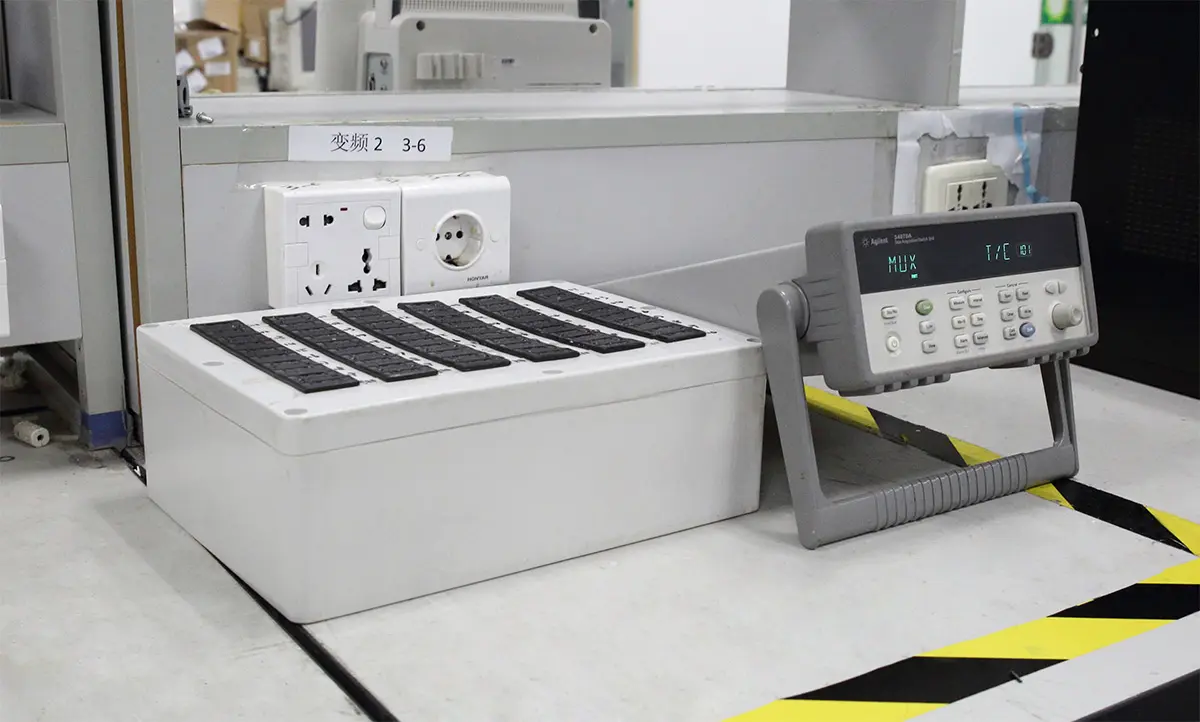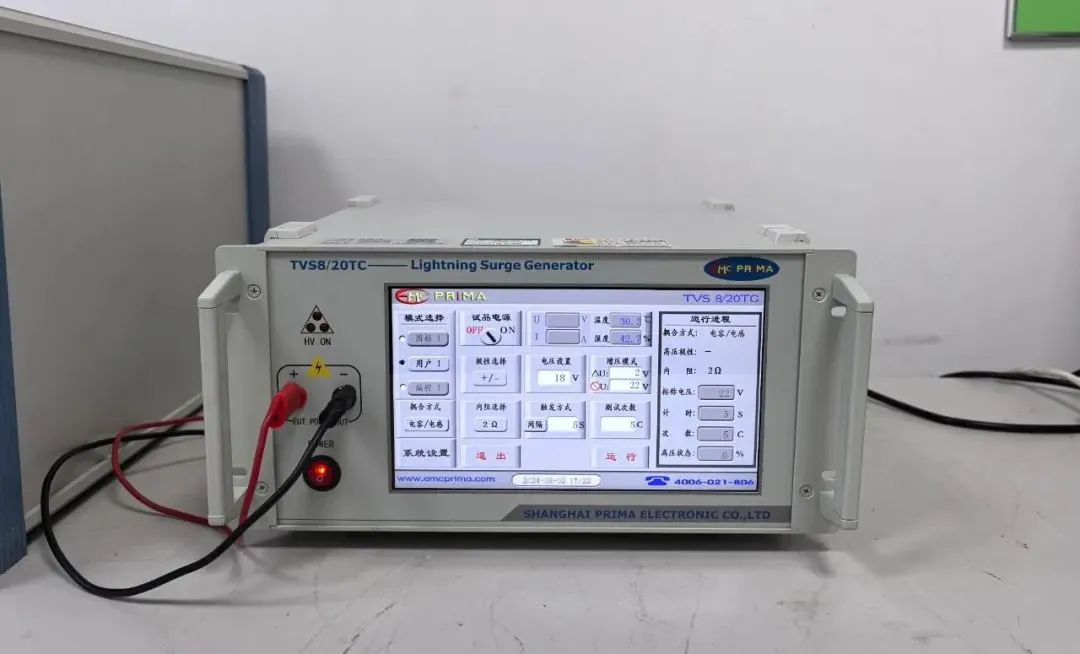
What is UKCA Certification?
ukca certification stands for United Kingdom Conformity Assessed, which is a certification system established by the UK for the implementation of new product marking requirements. This mark is voluntary and applies to products sold in the UK market. ukca certification replaces the EU CE certification and has become an important mark for products complying with UK regULations.
Background of UKCA Certification
The UK is one of Europe's major economies and enjoys a high reputation in many fields. To ensure that products entering the UK market meet requirements, the UK government has introduced various certification systems, including UKCA certification. The purpose of this certification system is to ensure the safety, performance, and quality of products sold in the UK market comply with relevant regulations and standards.
Scope of UKCA Certification
1. Toy safety: Including children's toys and electrical toys, ensuring their safety, quality, and compliance.
2. Electrical appliances: Including electronic devices, communication equipment, etc., ensuring their compatibility in electromagnetic environments to avoid interference with other devices.
3. Measuring instruments: Involving various measuring devices such as measuring instruments, measurement sensors, etc., ensuring their accuracy and compliance.
4. Machinery: Involving various machinery equipment such as industrial machinery, household appliances, etc., ensuring their safety, reliability, and compliance.
5. Pressure equipment: Including pressure vessels, gas cylinders, etc., ensuring their safety and compliance to prevent pressure-related accidents.
6. Personal protective equipment: Including safety helmets, protective goggles, gloves, etc., ensuring they provide appropriate protection in the workplace.
7. Radio equipment: Including wireless communication equipment, remote controls, etc., ensuring their compliance with radio spectrum management.
8. Simple pressure vessels: Involving small pressure vessels such as car tires, balloons, etc., ensuring their safety and compliance.

UKCA Certification Process
Step 1. Application
Submit an application for UKCA certification and fill out the application form. The application form includes all necessary information requiRED for issuing a quotation, typically including company and product details, schematics, technical drawings, user manuals, assessment reports/requirements, etc.
Step 2. Application Review
Once you have completed the application, the certification body will review the application form you submitted to ensure it contains sufficient information and that the certification information of the product is correct.
Step 3. Evaluation
Our engineers will conduct evaluations according to the agreed plan. Additionally, where regulations permit, you can submit pre-assessment reports from regulatory approval bodies.
Step 4. Technical Review
The reviewer will review the evaluation report and other documents provided based on the basic requirements of the regulations. Then, based on the review results, the reviewer will recommend whether to certify or not.
Step 5. Certification Decision
If the reviewer recommends certification, the issuing officer will conduct some additional reviews and make the final decision.
Step 6. Certification
After the certifying authority makes a positive certification decision, a certificate will be issued.
Advantages of UKCA Certification
1. UKCA certification is voluntary, but if products sold in the UK market do not obtain this certification, they will be considered non-compliant and cannot be sold in the market.
2. The audit process of UKCA certification is relatively simple. Certification bodies will assess the product based on testing reports and the manufacturer's quality management system, thereby speeding up the audit process.
3. The cost of UKCA certification is relatively low compared to some other international certifications.
4. The UKCA certification mark is similar to the EU CE certification mark, so it can serve as an entry permit for the EU market in some cases.
Considerations for UKCA Certification
1. UKCA certification is a certification system for the UK market, so if products need to be sold in other countries or regions, other relevant certifications are also required.
2. Manufacturers need to provide authentic product testing reports and related documents when applying for UKCA certification, or they may be rejected by the certification body.
3. When using the UKCA mark, attention should be paid to the manner and size of its usage, and the color and size of the mark should not be changed arbitrarily.
4. If products need annual audits or re-audits, manufacturers need to contact the certification body in advance and undergo the audit as required.
In summary, UKCA certification is a voluntary mark for the UK market and applies to products sold in the UK market. By obtaining UKCA certification, manufacturers can prove that their products meet the safety, performance, and quality requirements of relevant standards and regulations, thereby gaining customer trust and market recognition.
UKCA Certification Process and Duration
1. Determine applicable regulations and standards: First, determine with the testing organization the testing standards applicable to the UK for the product.
2. Testing and evaluation: Based on applicable regulations and standards, the testing organization tests and evaluates the product to ensure compliance.
3. Placement of the UKCA mark: After obtaining the ukca certificate and test report, companies can place the UKCA mark on the product to indicate compliance with UK regulations.
4. Document retention and supervision: Companies should properly retain compliance declaration documents, test reports, and other relevant documents and ensure the continuous compliance of the product.
5. Processing time: The processing time of UKCA certification may vary depending on the product type, sample quantity, and different testing organizations. Generally, the standard certification process takes about 7 working days.
Email:hello@jjrlab.com
Write your message here and send it to us
 What is ISO 22744-1 Compliance Testing?
What is ISO 22744-1 Compliance Testing?
 How to get an IEC Report for Electronics in South
How to get an IEC Report for Electronics in South
 USA FCC-ID Certification and Canada IC Certificati
USA FCC-ID Certification and Canada IC Certificati
 South African LOA Certification for Plugs and Sock
South African LOA Certification for Plugs and Sock
 Home Appliance GCC & SABER Certification in Sa
Home Appliance GCC & SABER Certification in Sa
 Home Heater Compliance Certification
Home Heater Compliance Certification
 What Is TB117-2013 Compliance Testing
What Is TB117-2013 Compliance Testing
 How to get a TB 117-2013 Test Report?
How to get a TB 117-2013 Test Report?
Leave us a message
24-hour online customer service at any time to respond, so that you worry!




